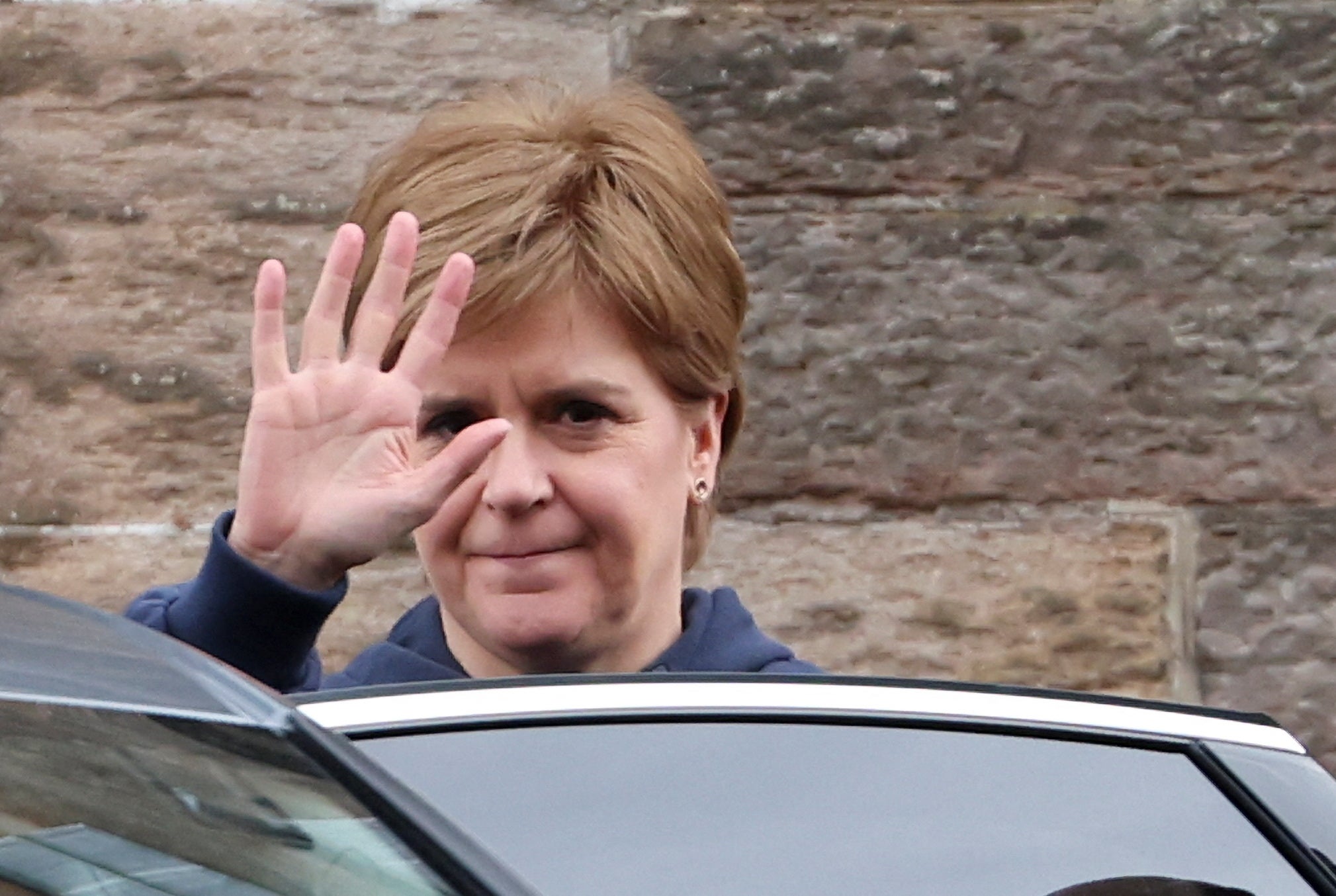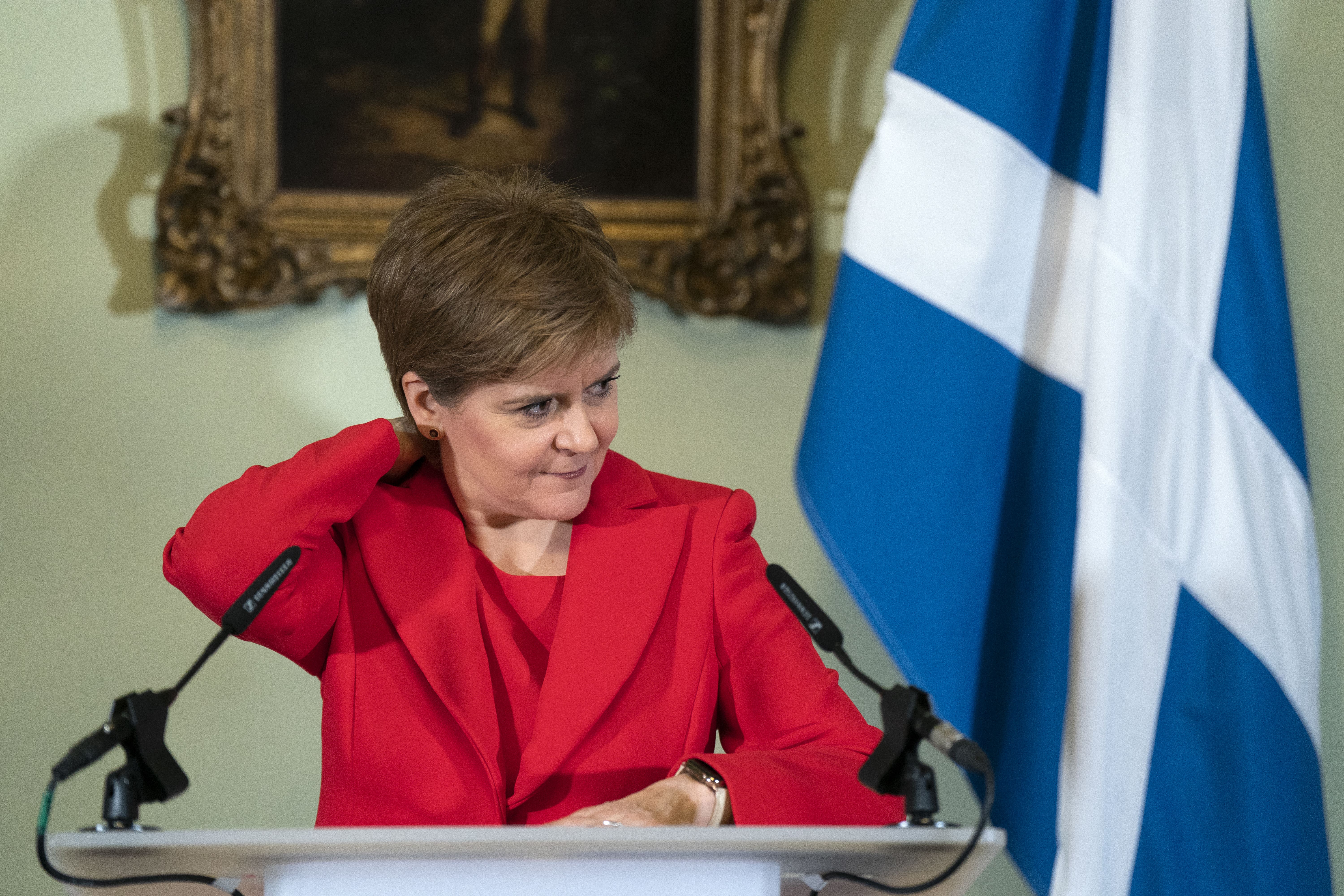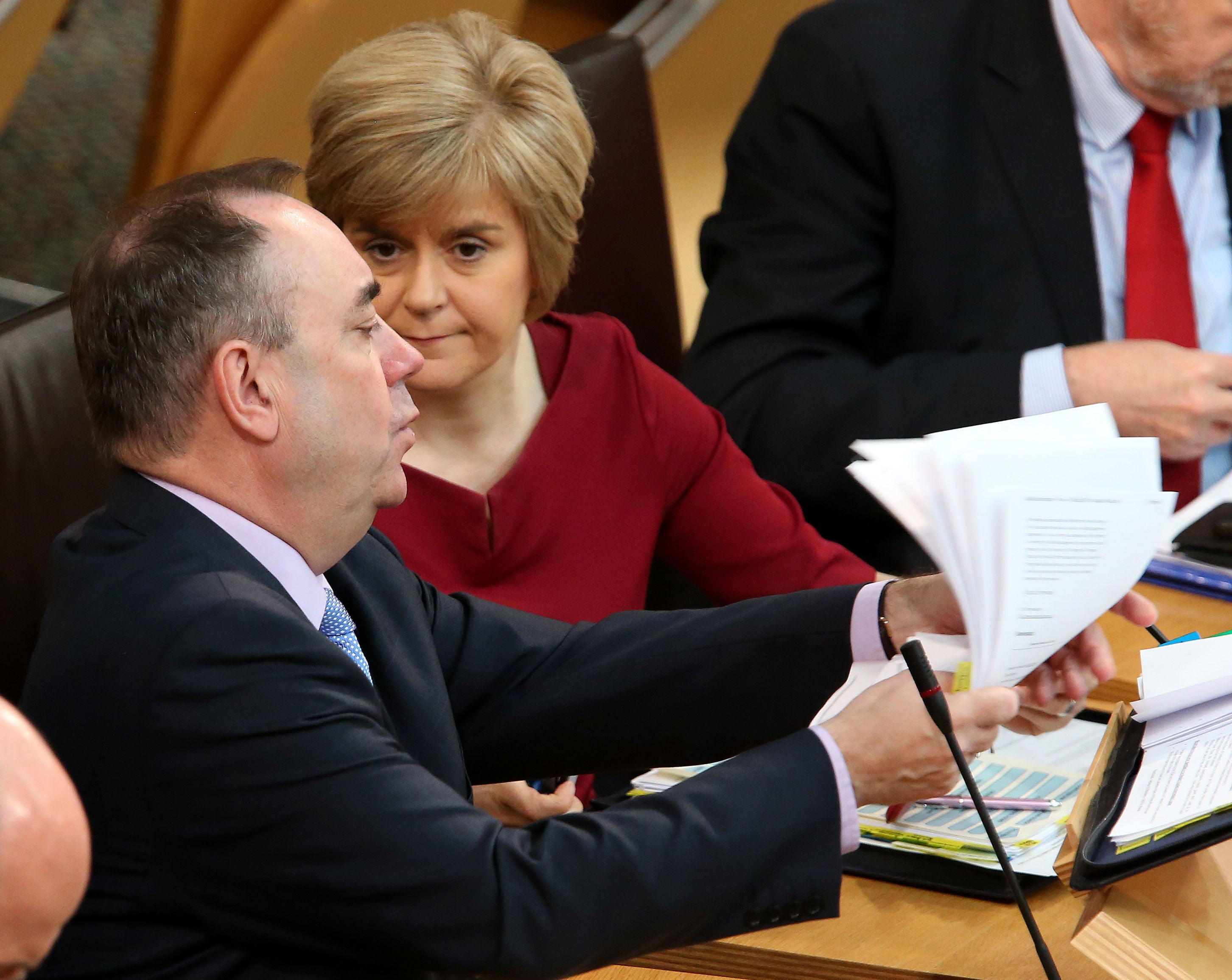Nicola Sturgeon, the independence champion doomed to fall short of her dream
The first minister has dominated politics in Scotland for most of the past decade – but she has paid a price

For all her recent stumbles and U-turns, the one thing Nicola Sturgeon has been constant about, indeed given her life to, is the cause of Scottish independence.
Even when Scotland was still a one-party Labour state, and the SNP was the eccentric hobby horse of a small band of some “tartan Tories”, Sturgeon was smitten by the romance of the national cause.
It is for this reason that, however sincere her belief that she was now becoming an obstacle to its achievement, it was indeed painful.
For a nationalist politician success is defined in a binary fashion – your country either becomes independent, or it does not. That has framed and defined her political life.
Now 52, Nicola Ferguson Sturgeon joined the Scottish National Party shortly before her seventeenth birthday, back in 1987. It was a small act of individual defiance.
Her father Robert (known as Robin) was an electrician, and mother Joan a dental nurse. Neither was especially political, or a nationalist, but in those days in west central Scotland they mostly weighed the Labour votes rather than counted them, and even the Tories enjoyed a bigger presence than the Scot Nats.
Indeed, Sturgeon tells the story of how a well-meaning teacher at her school brought her a Labour membership application form just because she’d shown a precocious interest in current affairs.
She rebelled a little at the patronising attitude, but if she had had an eye in a career in progressive politics that would have been the sensible thing to do.

Instead, she fell in love with the nationalist cause, because, as the argument went at the time (and is revived again now) Labour’s weakness means the choice was between a Thatcher government or a Scottish government. Nicola Sturgeon joined the SNP “purely out of conviction”.
She was thrilled that her home town of Irvine was mentioned in the lyrics of a famous Proclaimers’ hit, and the de-industrialisation of the country at the hands of an uncaring doctrinaire Conservative administration in London was bitterly resented.
Her nationalism was also part inspired by one particular work, the novel Sunset Song by Lewis Grassic Gibbon, which speaks to the tough realities of rural Scottish life in the 1930s.
Mass unemployment, poverty, the poll tax... it is fair to say that Margaret Thatcher did more for the cause of Scottish independence than the entire SNP in those days, and it was she who propelled Sturgeon into nationalism.
Something of the same might be said more recently about Brexit and the particular stripe of Englishness personified by Boris Johnson. She had a short spell as a solicitor before rededicating herself to a life in politics.
By 2007 she was a minister in the first SNP government, by 2014 heir apparent to first minister Alex Salmond, and in charge of the independence campaign for the referendum that year. They lost, Salmond quit, and Sturgeon emerged as the dominant force in politics she has been until now.

With a lawyer’s eye for detail, a formidable work ethic and a distinctive bobble-headed speaking style, the SNP gained a grip on Scottish politics it is only now beginning to relinquish.
The high water mark was the 2015 Westminster general election, when the SNP won almost all the seats in Scotland. In this “tsunami” Labour was driven out of its original “Red Wall” at a stroke, which mattered because the party has very rarely managed to win a general election based on the results in England.
Thus, Sturgeon’s party, defining itself as a modern European-style social democratic movement despite its basic tenet of nationalism, became the natural party of government in Scotland and ensured that an English Tory government would persist in London, the ideal outcome to capitalise on Scottish resentment about Brexit, migration, refugees, social policy and much else.
Johnson was only the most easily dislikeable of a whole parcel of rogues. In Holyrood the “unionist” Opposition was conveniently split between Tories (who actually overtook Labour), Labour and the Lib Dems, while the Greens could be relied on to back the SNP in a tight vote and support separation.

But, as with all parties in government, democratic or otherwise, eventually time and mistakes caught up. Sturgeon’s daily Covid press conferences and weekly parliamentary question times provided ample evidence that she can handle a brief pretty effectively.
No one has failed her for her ability to take decisions and communicate policy. But as the years in power went on, the errors built up. Reforms to Scotland’s well-regarded education system didn’t deliver, and, as elsewhere in the UK, the NHS was seen to buckle.
A scheme to build new ferries for the isles ran into huge overspends. Sturgeon’s husband was the chief executive of the SNP, a bizarre situation – imagine Carrie Johnson looking after the Tories’ finances – that has led to distracting stories and accusations.
And of course the Gender Recognition Reform Bill has caused endless splits and bitter divisions in the SNP and wider Scottish society. The bill was designed to establish Scotland as the pioneering, most progressive part of the UK. It also had the happy side effect of winding up the UK government and provoking a row over Scotland’s right to run its own affairs, when Rishi Sunak vetoed it.

It was supposed thus to help make the argument for independence. It didn’t really turn out that way, and the whole initiative, despite cross-party support, collapsed into a series of rows about rapists, prisons and women’s safe spaces.
Unusually, Sturgeon allowed herself to get flustered on the issue, tripped over the usual journalistic trap of defining a woman, and seemed not to quite get a grip on the right personal pronouns when discussing the allocation of prison places. A humiliating U-turn was inevitable.
All that, distorting as it has been was survivable. What isn’t, for a nationalist, is seeing the cause of independence slip back, partly as a result of the growing problems the SNP has found itself in in government.
A special conference next month is supposed to settle the question of tactics, but even under Sturgeon’s leadership, had she stayed on, it’s not obvious what the path to independence would actually look like.
With a Tory government on the way out, a Labour government at hand, the ugly experience of Brexit as a guide to how unhappy separation can be, and support for independence staying stubbornly stuck in the polls at 50 to 60 per cent, no SNP first minister can be confident of winning any kind of mandate for independence, formal, informal, lawful, proxy via general election or otherwise.
Sturgeon dominated politics in Scotland for most of the past decade. She’s paid a price, in terms of family life and all the stress and nastiness that comes with our hyper partisan political culture – perhaps especially so on the national issue in Scotland. There’s been misogyny.
She herself once explained how it felt: “You find yourself emulating the traits that in men are seen as strengths. Then you quickly realise that in women they are not seen as strengths. So the male politician who’s very assertive, aggressive and adversarial is a great, strong leader. A woman is bossy and strident – a nippy sweetie as they used to call me.”
She was obviously much more than that, and she came as close as anyone could to changing the face of Britain.
In the end, the paradox seems to be that the very personality that made that happen started to complicate and damage the cause. They’ll be lucky to find someone as good as her again though.






Join our commenting forum
Join thought-provoking conversations, follow other Independent readers and see their replies
66Comments